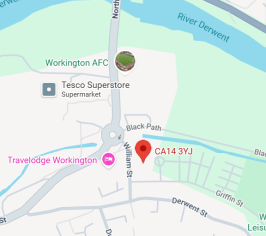Why is the Coroner involved?
The Coroner has a legal duty to investigate a person’s death where the deceased has died a violent or unnatural death or the deceased has died in custody or state detention.
When a death is reported to a coroner, they:
- decide whether an investigation is needed; and if it is,
- investigate to establish the identity of the person who has died; how, when, and where they died; and any information they need to register the death; and,
- use information discovered during the investigation to help prevent other deaths, where this may be necessary.
It is important to note that the Coroner’s role is to find out who died, when, where and how their death came about. It is not within the Coroner’s remit at Inquest to apportion blame or make a determination in respect of either civil or criminal liability.
What should I do if I have concerns about the care given to the deceased prior to their death?
You should contact the Coroner’s Officer assigned to the case by phone, email or post. Please note that we may require such representations, with any supporting evidence, in writing. Representations may be shared with other agencies involved in the investigation, and it may be read, into evidence, in court should an Inquest be required.
A post mortem has been undertaken, when will the final report confirming the cause of death be available?
Due to the complexity of histology and toxicology testing, and the demand on these services, the usual timescale for the final post mortem report is currently 12-13 weeks. Often reports will come in sooner and the Coroner’s Officer assigned to the case will provide you with this as soon as possible.
Who will contact me and how often?
The Coroner’s Officer assigned to the case will make contact at the time in which there is a substantive update, this will usually be by post but in some instances they will call or email the next of kin. You can contact the Coroner’s Officer with any queries you may have.
I have a disability and may require assistance, who do I need to speak with?
Please let the Coroner’s Officer assigned to the case know as soon as possible, we will do what we can to provide you with any adjustments you need to ensure the information we send is useable for you and to allow you access to the proceedings without any barriers.
Where is the Court?
The Court is located at Allerdale House, Workington.
The following link will show a map of where to find our office:
https://hmcoronercumbria.org.uk/hm-coroners-offices
Is there parking available?
There is on-site parking available. There are visitor and disabled bays to the front of the building, and there is a large car park beyond this. Please park in a bay and enter your registration number on the tablet in the reception area. If there are no spaces available, please use the neighboring pay and display car parks at Griffin Street, or Brow Top Car Park. Details can be found here: www.cumberland.gov.uk/parking-roads-and-transport/parking/find-car-park-near-you.
I would like to attend by video or audio link, is this possible?
Yes, please contact the Coroner’s Officer assigned to the case, they will provide you with the necessary information. If you wish to attend by video-link you will need to provide us with an email address and have access to Microsoft Teams. The audio-link will be accessible by mobile or landline phones (charges may apply with your provider).
Will the Press be at the Inquest?
The Inquest will be heard in open court and the Press are free to attend and report on the proceedings, the public and press can only be excluded by direction of the Coroner in the interests of justice or national security. Further information can be found at: https://www.judiciary.uk/guidance-and-resources/open-justice/
Will witnesses be present in Court?
Please speak with the Coroner’s Officer assigned to the case, as this will vary depending on the circumstances in which someone passes away. Where the evidence is unlikely to be disputed, the Coroner will not require the witness will be present to give evidence.
Can the Inquest be held without a hearing?
In some instances it is possible for the Inquest to be dealt with “in writing”, where the Coroner will consider the evidence that they would usually hear in court and give their determination in writing, without the need for a formal court hearing. If an Inquest is dealt with in this way, we can provide the Next of Kin/family with a record of Inquest which confirms the medical cause of death and the Coroner’s conclusion.
The legal test for an Inquest in Writing is strict and set out in the Chief Coroner’s Guidance which can be found here https://www.judiciary.uk/guidance-and-resources/documentary-inquests-and-inquests-in-writing/.
When will I get a death certificate?
Following the hearing, we will contact the relevant Registrar who will, in turn, contact you directly to arrange the issuing of the final death certificate.

